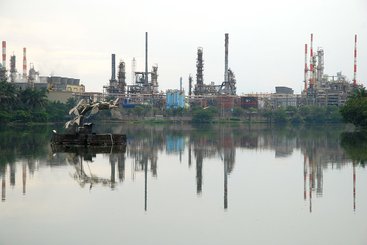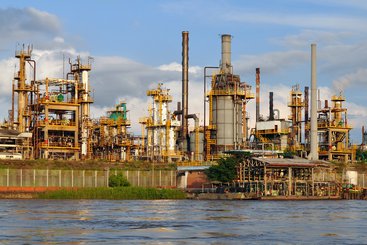Nigeria’s energy future is at a crossroads. Despite its longer-term net zero climate goals, Nigeria remains reliant on the oil and gas industry. At the same time, the country continues to grapple with major development challenges, including improving access to healthcare, education, basic services and infrastructure.
Our latest research with WRI finds that the Nigerian National Petroleum Corporation’s (NNPC) investments have led to taxpayer-borne losses of nearly $2 billion between 2017 and 2018. The Nigerian government has also provided at least $1.7 billion of consumption subsidies for oil in 2019, mostly directed at Premium Motor Spirit (PMS), used to power vehicles and generators.
Previous attempts to reform oil consumption subsidies in Nigeria have not been successful and often triggered a public backlash. Subsidies are seen as one of the few areas where the government supports its citizens and in particular low-income communities, and there is limited trust in the government to use proceeds of any subsidy reform effectively and equitably for all Nigerians.
Savings from subsidy reforms can, however, be channelled towards building cleaner, efficient and affordable energy systems. The government has an opportunity to meaningfully involve Nigerians in national dialogues to narrow options and sequence the subsidy reform process, so that social benefits are provided equitably before energy subsidies start being taken away.
Carefully planned reforms and repurposing could reduce poverty, improve access to clean energy and support a more equitable transition to a low-carbon economy. Financial support from wealthier, high-emitting countries and multilateral finance and development institutions will be critical in supporting Nigeria’s subsidy reform, transition efforts and climate and development objectives.




